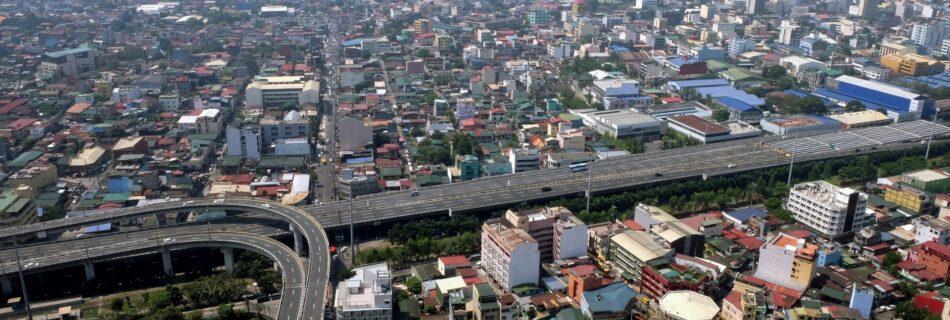Ini Dia 5 Jenis Pohon Terbaik untuk Kurangi Emisi Karbon!
Krisis iklim yang semakin nyata membuat upaya mengurangi emisi karbon menjadi semakin mendesak. Salah satu solusi alami yang terbukti efektif adalah dengan menanam pohon. Melalui proses fotosintesis, pohon menyerap karbon dioksida (CO2) dari atmosfer dan menyimpannya dalam jaringan kayu mereka, membantu mengurangi konsentrasi gas rumah kaca penyebab pemanasan global. Tidak semua pohon memiliki kemampuan yang sama dalam menyerap karbon. Beberapa jenis pohon lebih efisien dalam menyimpan karbon dibandingkan yang lain, baik karena pertumbuhan yang cepat, ukuran besar, maupun masa hidup yang panjang. Berikut ini lima jenis pohon terbaik yang dapat membantu mengurangi emisi karbon secara signifikan. Mangrove (Rhizophora spp.) Mangrove adalah salah satu penyerap karbon paling efektif di dunia. Tidak hanya menyimpan karbon di batang dan daunnya, tetapi juga dalam sistem akar dan tanah berlumpur di sekitarnya. Bahkan, hutan mangrove dapat menyimpan karbon lima kali lebih banyak per hektar dibandingkan hutan daratan tropis. Baca juga artikel lainnya : Penyerap Karbon Luar Biasa: Pohon Mangrove, Petai, dan Durian Secara alami, tanaman Mangrove tumbuh di wilayah pesisir dan memiliki akar-akar unik yang membentuk jaringan padat. Kehadiran tanaman Mangrove ini tidak hanya menahan sedimen, tetapi juga menjebak karbon organik dalam jangka waktu yang sangat lama. Selain manfaat karbon, mangrove juga melindungi garis pantai dari erosi, badai, dan tsunami. Dari segudang manfaat tersebutlah menjadikan pohon mangrove sangat populer untuk digunakan sebagai media implementasi program ESG perusahaan. Trembesi (Albizia saman) Jenis pohon berikutnya yang memiliki kemampuan sangat baik dalam menyerap karbon adalah Trembesi. Pohon ini sering disebut juga sebagai pohon hujan yang dikenal karena tajuknya yang sangat lebar dan pertumbuhannya yang relatif cepat. Satu pohon trembesi dewasa bisa memiliki diameter tajuk hingga 30 meter dan mampu menyerap hingga 28,5 ton CO₂ per tahun. Kemampuan penyerapan karbon yg baik ini ini membuat trembesi menjadi pilihan utama dalam program penghijauan, terutama di daerah urban dan pinggiran kota. Selain menyerap karbon, trembesi juga memberikan keteduhan yang luas, membantu menurunkan suhu lingkungan, dan mengurangi efek panas perkotaan. Trembes juga memiliki kelebihan dari segi fleksibilitas dan adaptivitas. Tanaman ini cocok ditanam di berbagai jenis tanah dan tahan terhadap kekeringan, menjadikannya salah satu spesies pohon yang ideal untuk berbagai kondisi iklim di Indonesia. Mahoni (Swietenia macrophylla) Mahoni adalah salah satu jenis pohon keras tropis yang berasal dari Amerika Tengah dan Selatan, namun saat ini telah dibudidayakan secara luas di Asia Tenggara, termasuk Indonesia. Pembudidayaan pohon Mahoni memiliki banyak manfaat, termasuk manfaatnya untuk menyerap karbon. Pohon Mahoni mampu menyerap sebanyak 295,73 kg karbon dalam setahun. Dalam hal ini, Mahoni mampu menurunkan CO2, energi panas dan polutan lain yang dilepaskan ke udara. Oleh karena itu, pohon mahoni banyak ditanami di pinggir jalan. Sehingga kehadiran pohon Mahoni dapat menyerap polutan kendaraan di sekitarnya sekaligus memberikan keteduhan di area yang gersang. Jati (Tectona grandis) Jati dikenal luas karena kayunya yang kuat, tahan lama, dan bernilai tinggi. Namun ternyata, di samping nilai ekonominya, pohon jati juga memiliki peran penting dalam mitigasi perubahan iklim. Pohon jati mampu tumbuh tinggi dan memiliki biomassa yang besar, sehingga berkontribusi signifikan terhadap penyerapan karbon. Dalam kondisi yang optimal, pohon jati dapat mencapai tinggi lebih dari 40 meter dan berdiameter batang besar. Siklus hidup pohon jati yang panjang, yakni bisa mencapai ratusan tahun, membuat pohon jati mampu mengikat karbon dalam jangka panjang, sehingga membantu mengurangi pelepasan kembali ke atmosfer. Apabila perkebunan jati dikelola dengan prinsip agroforestri atau kehutanan berkelanjutan, maka dapat menjadi bagian dari strategi nasional untuk meningkatkan cadangan karbon tanah dan udara. Sengon (Paraserianthes falcataria) Sengon adalah pohon cepat tumbuh yang sering digunakan dalam industri kayu dan sebagai pohon pelindung di kawasan agroforestri. Di samping itu, Sengon memiliki kemampuan adaptasi terhadap berbagai jenis tanah dan kondisi iklim, serta pertumbuhannya yang sangat cepat, yaitu bisa mencapai tinggi 7-10 meter hanya dalam 3 tahun. Dengan pertumbuhan cepat ini, pohon Sengon mampu menyerap karbon dalam jumlah besar dalam waktu singkat. Meskipun umur hidup sengon relatif pendek dibandingkan pohon besar lainnya, rotasi penanaman sengon yang berkelanjutan tetap memberikan kontribusi positif dalam penyerapan karbon atmosfer. Selain itu, sengon sering digunakan dalam sistem tumpang sari, yang meningkatkan produktivitas tanah dan memperbaiki kualitas lahan terdegradasi, sekaligus memberikan manfaat ekonomi kepada petani lokal. Menanam untuk Masa Depan Saat dunia terus berjuang melawan dampak perubahan iklim, menanam pohon bukan sekadar tindakan simbolis melainkan bagian dari solusi nyata yang bisa membawa perubahan besar. Dengan strategi penanaman yang tepat, kita tidak hanya membantu mengurangi emisi karbon, tetapi juga memperbaiki kualitas udara, memperkuat ketahanan ekosistem, dan meninggalkan warisan hijau untuk generasi mendatang. Menanam pohon juga dapat menjadi pilihan program ESG perusahaan yang berdampak. Terutama saat ini telah hadir Satuplatform yang dapat membantu inisiatif lingkungan perusahaan dalam pengelolaan karbon dan ESG. Sebagai all-in-one solution, Satuplatform menyediakan berbagai layanan dan konsultasi bagi perusahaan dari berbagai sektor industri. Mari coba FREE DEMO nya sekarang! Similar Article Pemanfaatan AI dalam Upaya Pelestarian Lingkungan Tidak dapat dipungkiri bahwa teknologi kecerdasan buatan atau Artficial Intelligence (AI) telah mengalami kemajuan yang sangat pesat dan menjadi bagian yang krusial dari berbagai aspek kehidupan. Saat ini, pengaplikasian AI tidak lagi terbatas dan sudah sangat luas. AI diimplementasikan dalam berbagai hal yang sekiranya dapat mendukung kemudahan hidup bagi manusia, seperti menjadi asisten virtual, mesin pencari data, pengisi suara, dan lain sebagainya. Perkembangan AI juga telah membuka peluang baru di berbagai industri, seperti transportasi, pendidikan, dan hiburan. Bahkan AI juga diprediksi dapat mendukung manusia dalam upaya dekarbonisasi, mengurangi emisi karbon sebagaimana yang dunia harapkan. Artificial Intelligence dapat berperan besar dalam… Mengenal Agbogbloshie ‘Tempat Penampungan’ Sampah Elektronik Dunia Pernahkah kamu mendengar tentang tempat pembuangan sampah Agbogbloshie? Tempat ini pernah menjadi salah satu tempat pembuangan sampah terbesar di dunia yang menampung jutaan sampah limbah elektronik dan otomotif yang sumbernya disebut-sebut berasal dari banyak negara di berbagai belahan dunia. Tempat penampungan sampah Agbogbloshie terletak di dekat pusat kota Accra, Ghana, dan berada di dekat wilayah kumuh yang sering disebut “Old Fadama”. Kota Accra diketahui merupakan ibu kota sekaligus kota terbesar dan terpadat di Ghana yang menjadi rumah bagi sekitar 1,97 juta jiwa penduduk. Kota Accra dikenal memiliki panorama alam yang indah, pantai-pantai yang berkilauan, serta bangunan-bangunan monumental yang menambah nilai… Air Minum Kemasan Plastik Dilarang di …
Read more “Ini Dia 5 Jenis Pohon Terbaik untuk Kurangi Emisi Karbon!”











